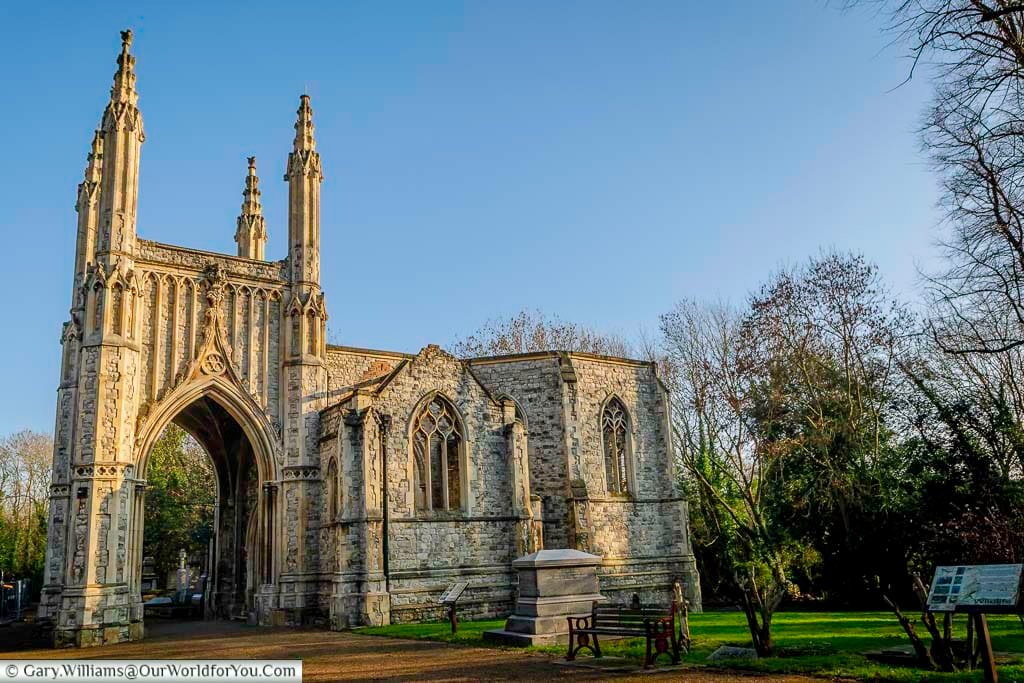The Greeks, a cook & a potter…
(Here's 3 reasons you may want to visit, but there's more...)Still not being able to shake off my unusual allure with a cemetery, we find ourselves at another of London's "Magnificent Seven"; West Norwood Cemetery to be exact.
I say find ourselves, once again Gary succumbs to my insistence that while we're visiting London, I suggest that we "pop" into West Norwood Cemetery.
West Norwood Cemetery was built in 1836, along with six other large private cemeteries during the 19th century; this was to alleviate the overcrowding in London.
The most well-known of these, I would think, is Highgate Cemetery (and yes, that is on my list to visit).
We visited Brompton cemetery last year, so, I've started to tick them off.
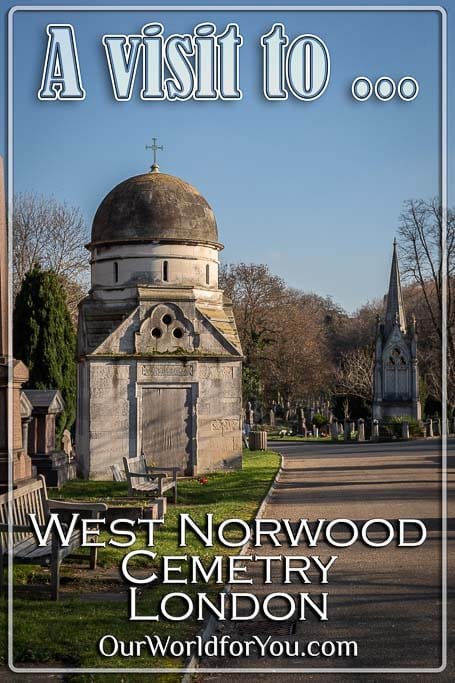
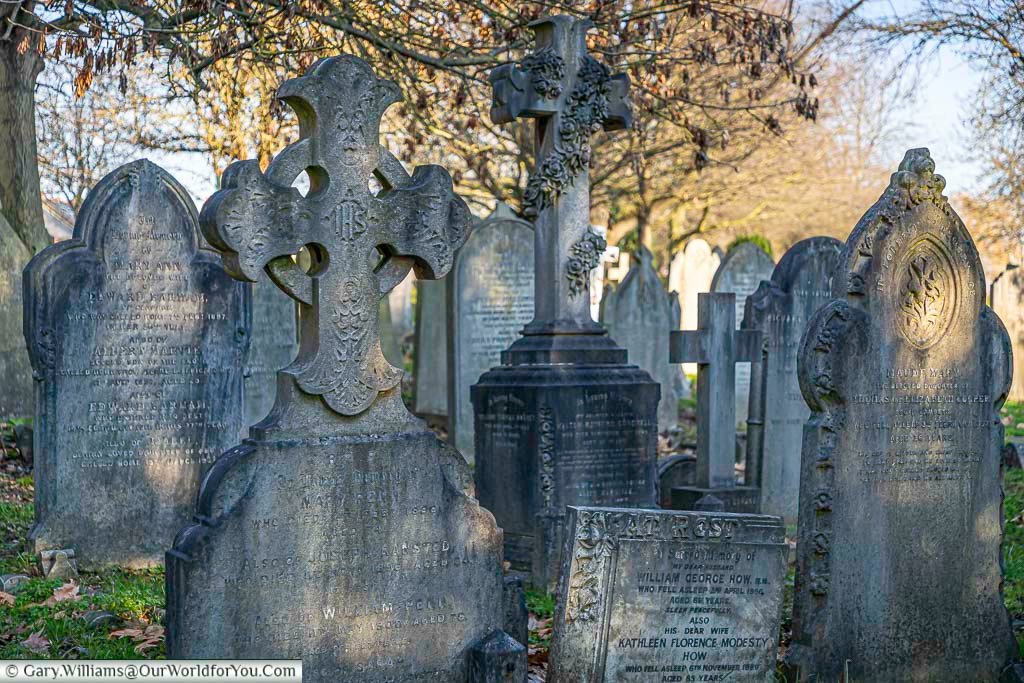
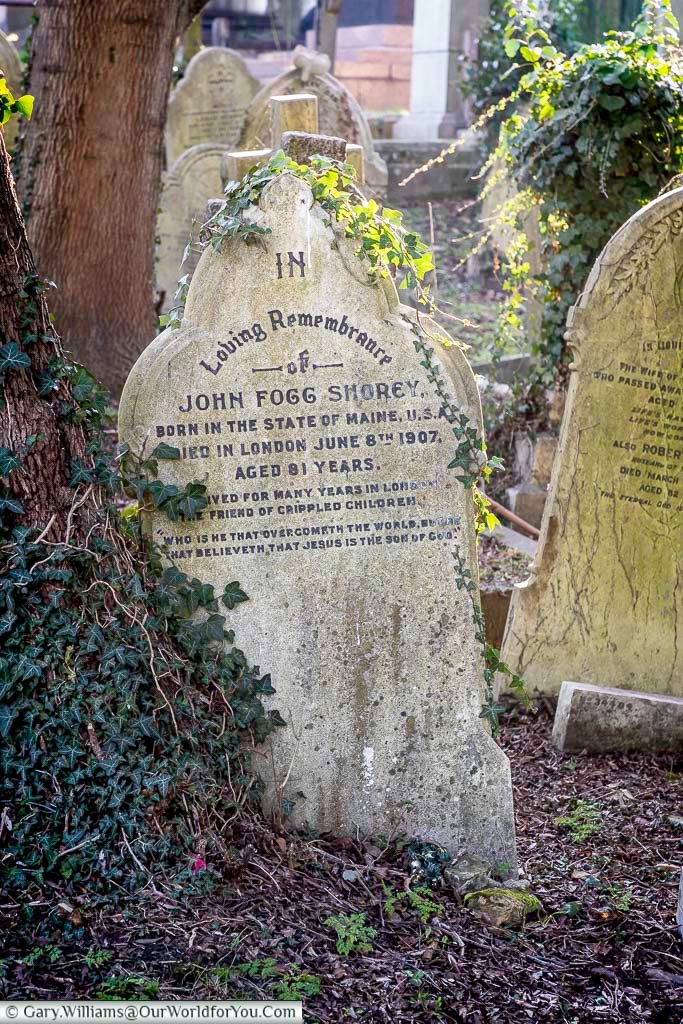
Where is West Norwood Cemetery?
How to get to West Norwood Cemetery
- By Train
You can catch a Southern Railways train to West Norwood from London Bridge/Charing Cross or Victoria mainline railway stations, and the journey will take you under an hour.
- By Car
There is very limited parking at West Norwood Cemetery and on the side streets around it. If you're a fan of What3Words then the main entrance gate can be found at ///expand.carbon.volunteered.
Stay informed
Notable burials West Norwood Cemetery
Maxim machine gun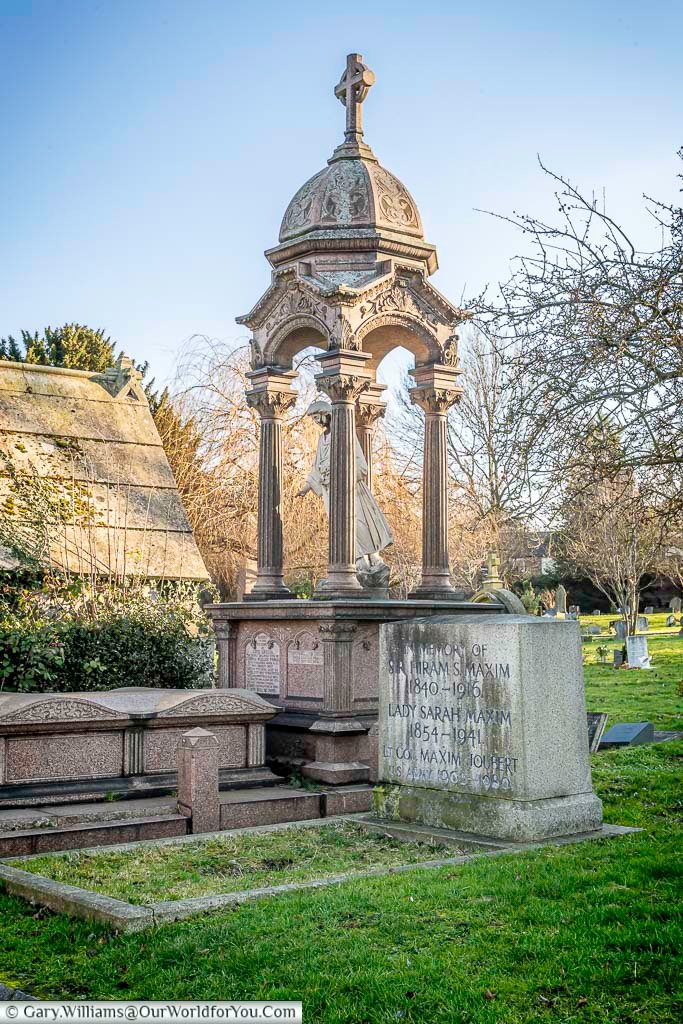
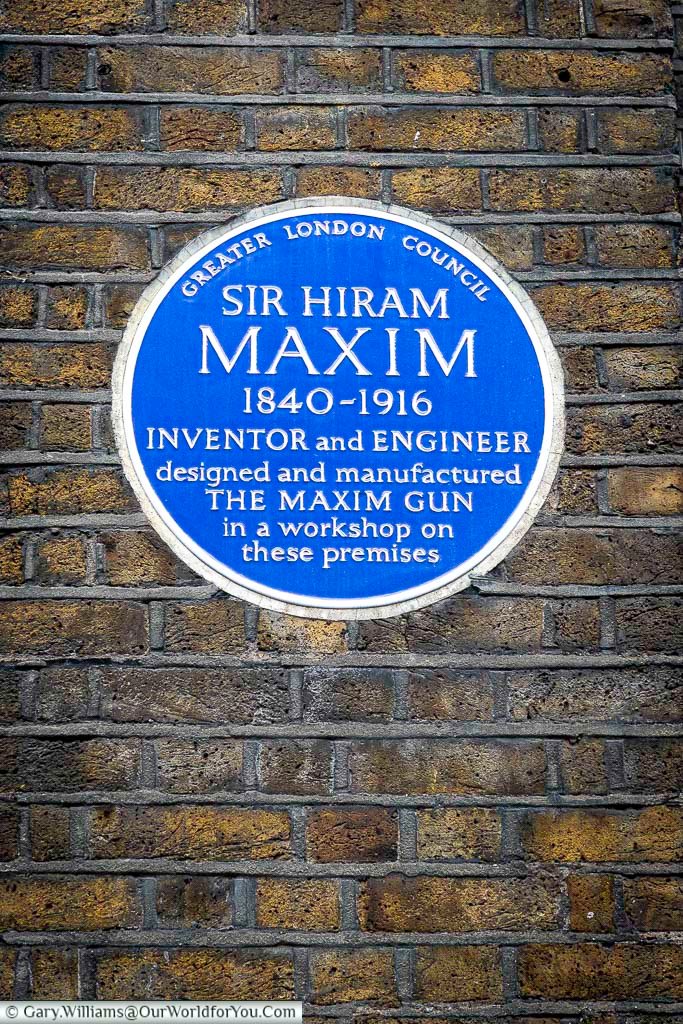
The Greek Orthodox section West Norwood Cemetery
The Necropolis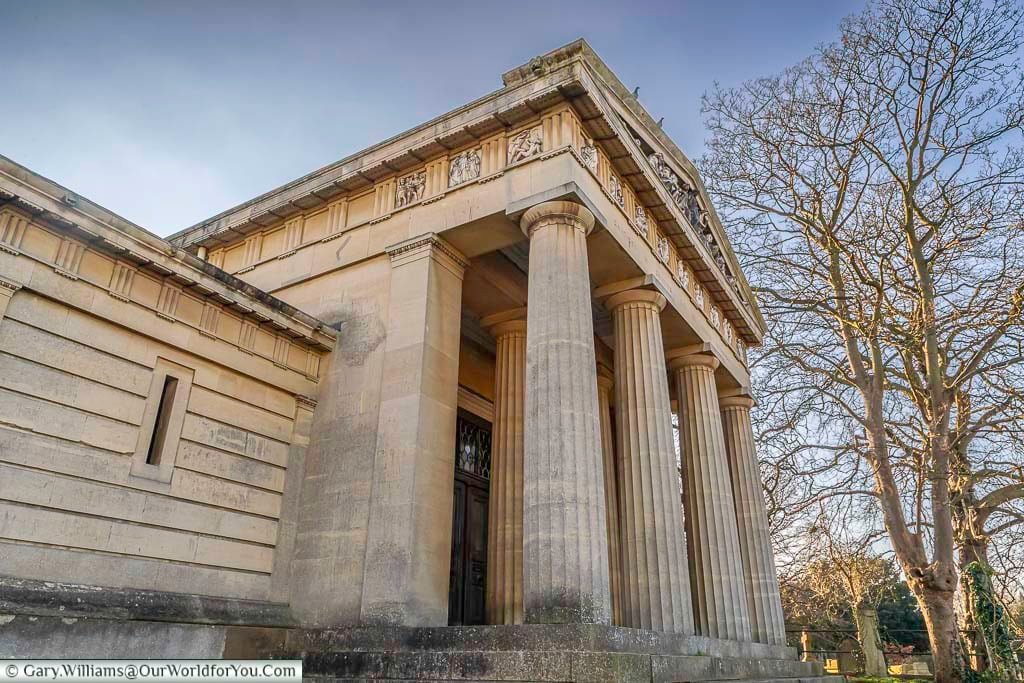
There was no stopping us; 19 of the graves within the Greek section are listed, so there's a considerable amount of history here.
We encountered the impressive mausoleum for Panayis Athanase Vagliano, a renowned Greek merchant and shipowner. Then, a headstone a lot smaller, however, equally striking as the tiny inlaid tiles were so colourful and ornate.
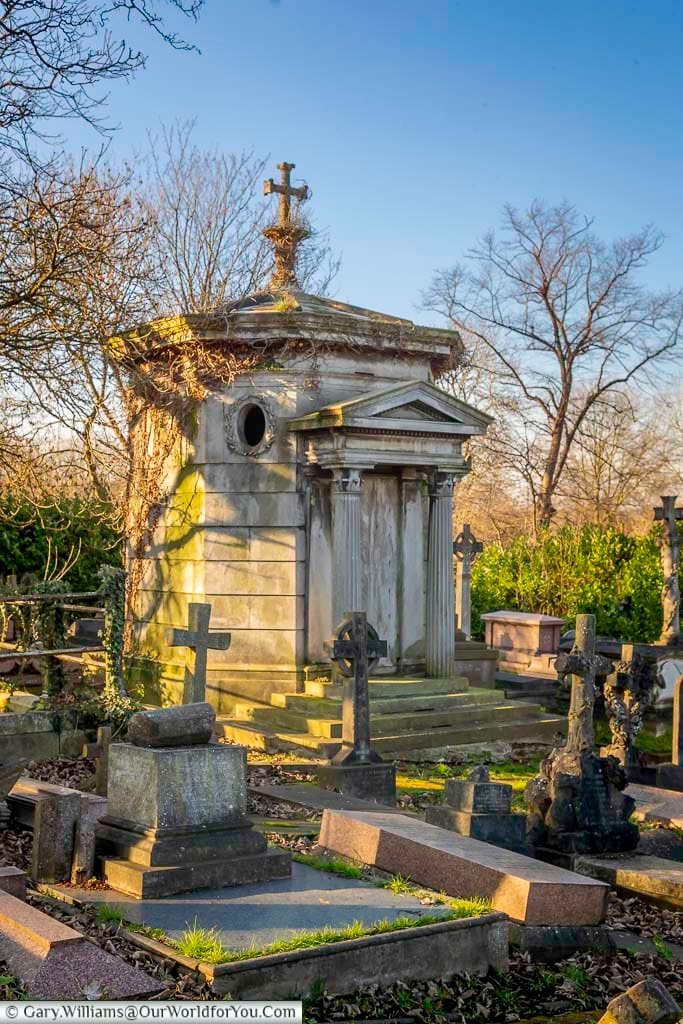
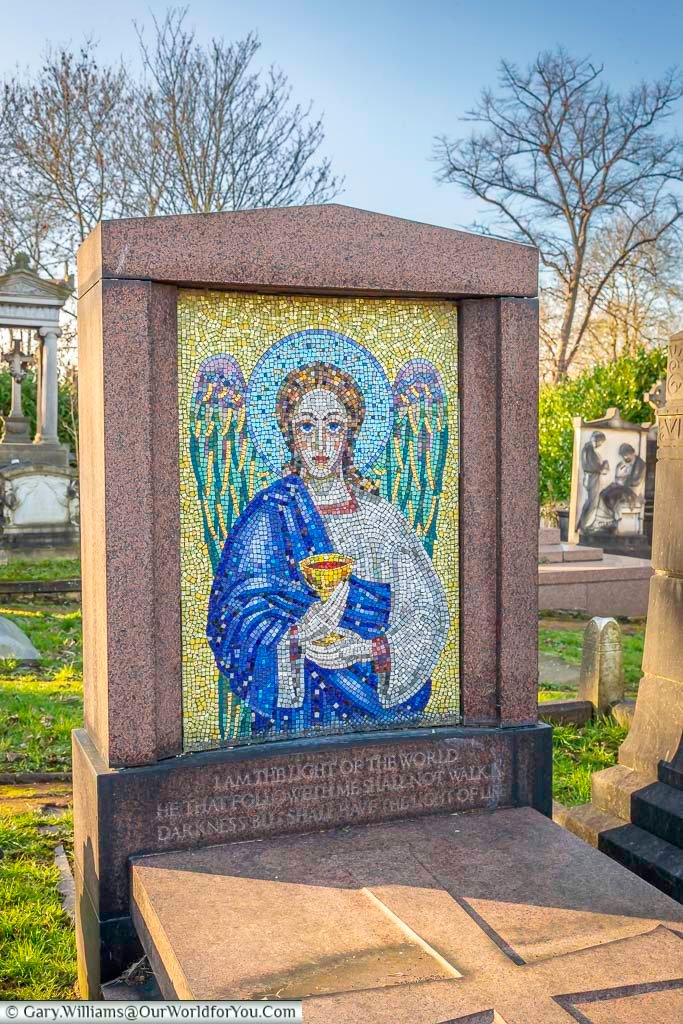
Have You?
A West Norwood Cemetery tour
Discover the Potter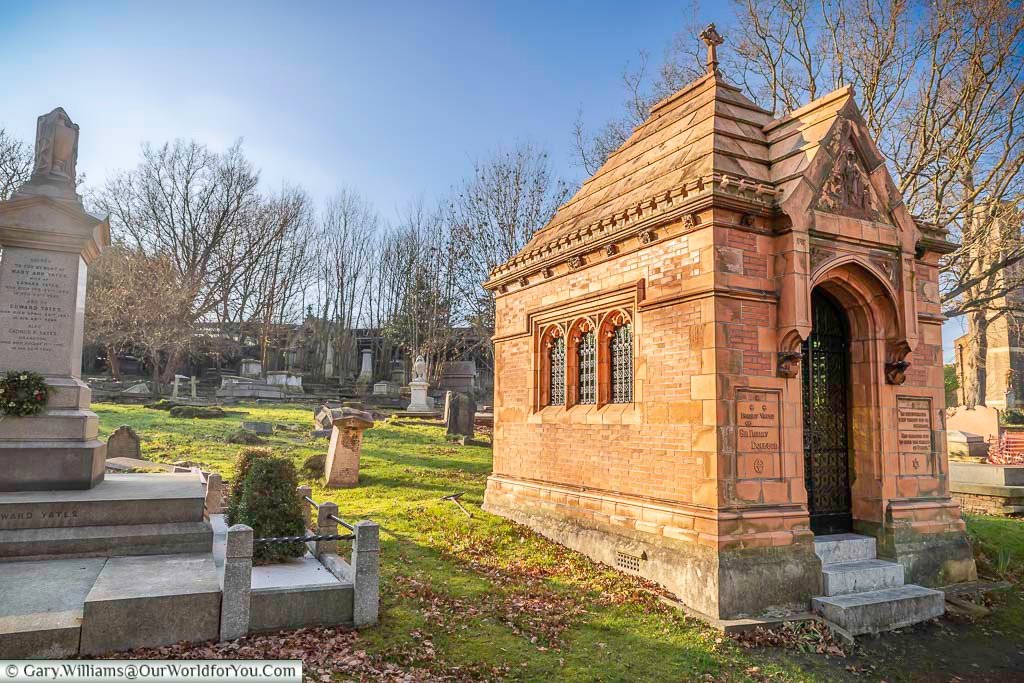

Another Famous name at West Norwood Cemetery
The Cook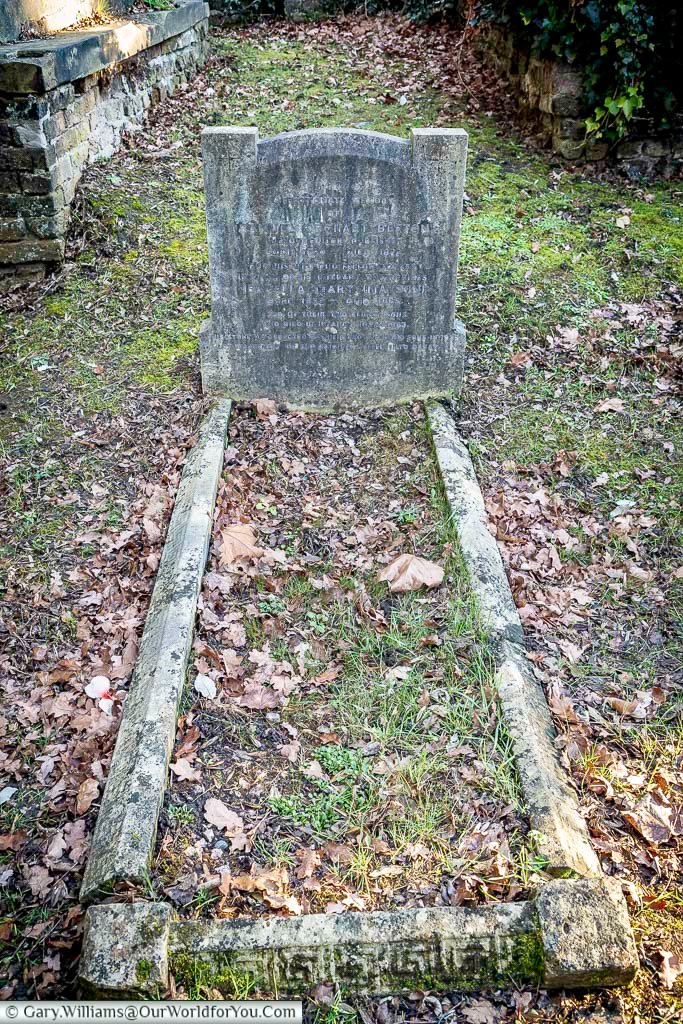
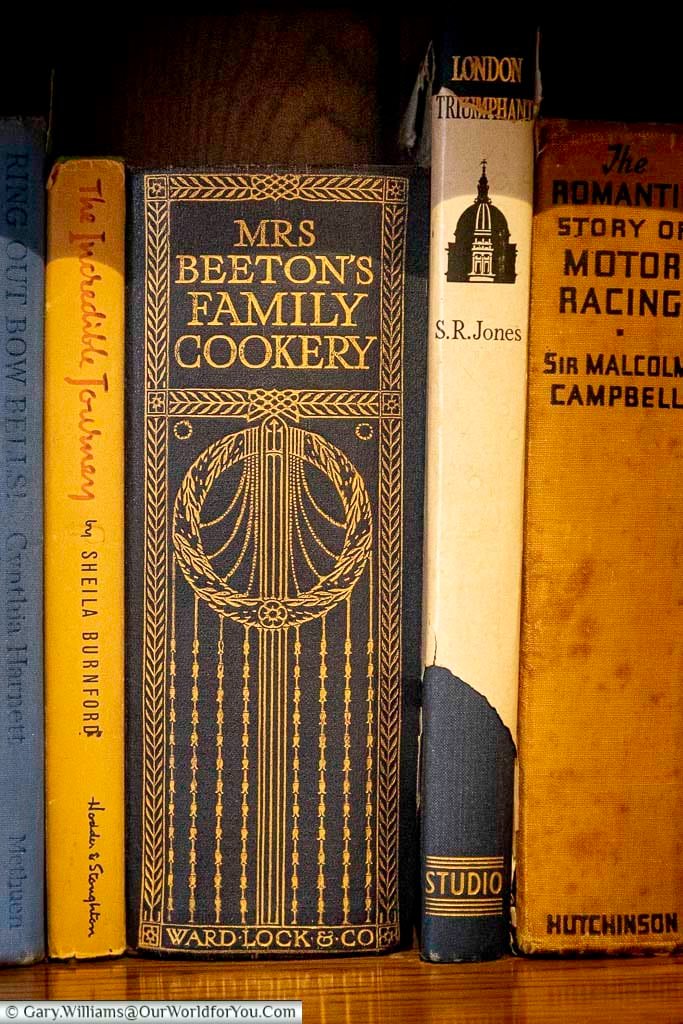
Find out more
West Norwood Cemetery architecture
And the Banker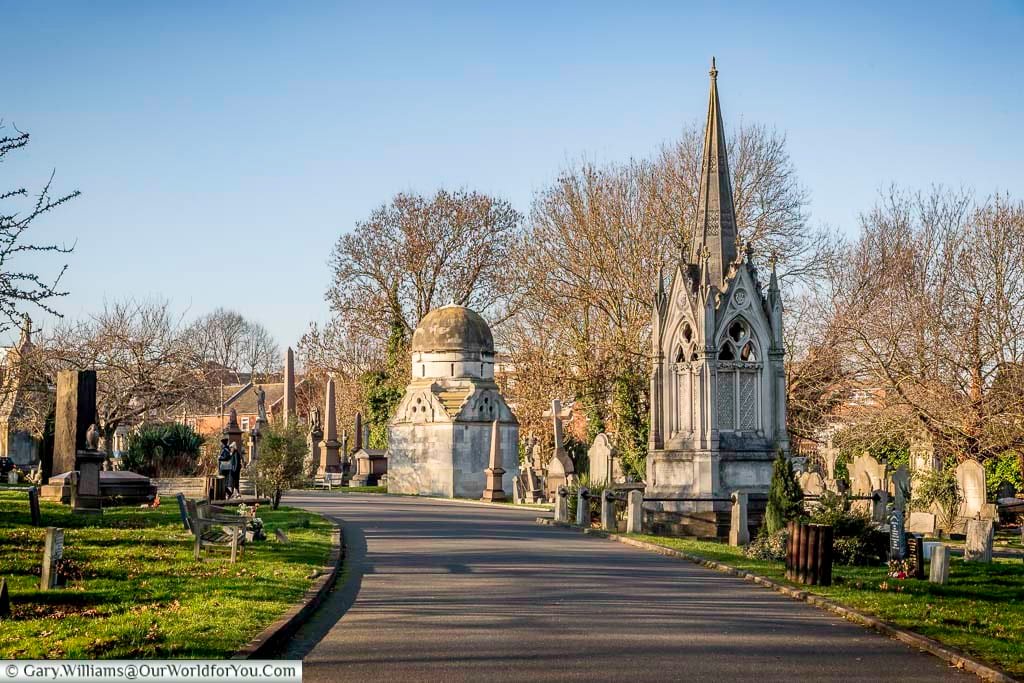
Point to Note
West Norwood Cemetery history
The Surgeon and a Mariner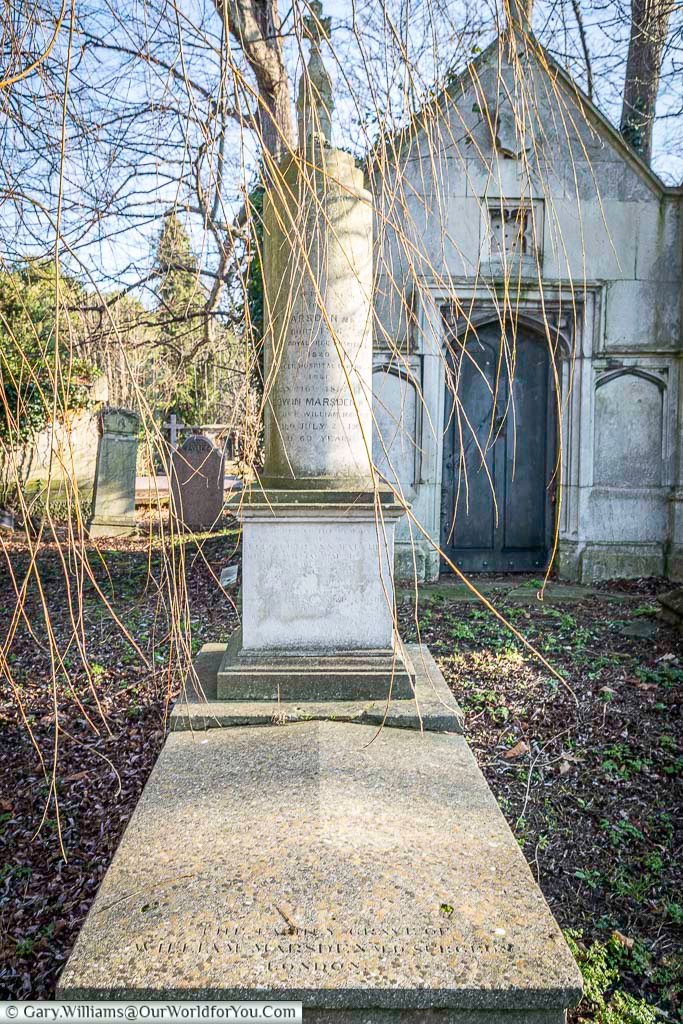
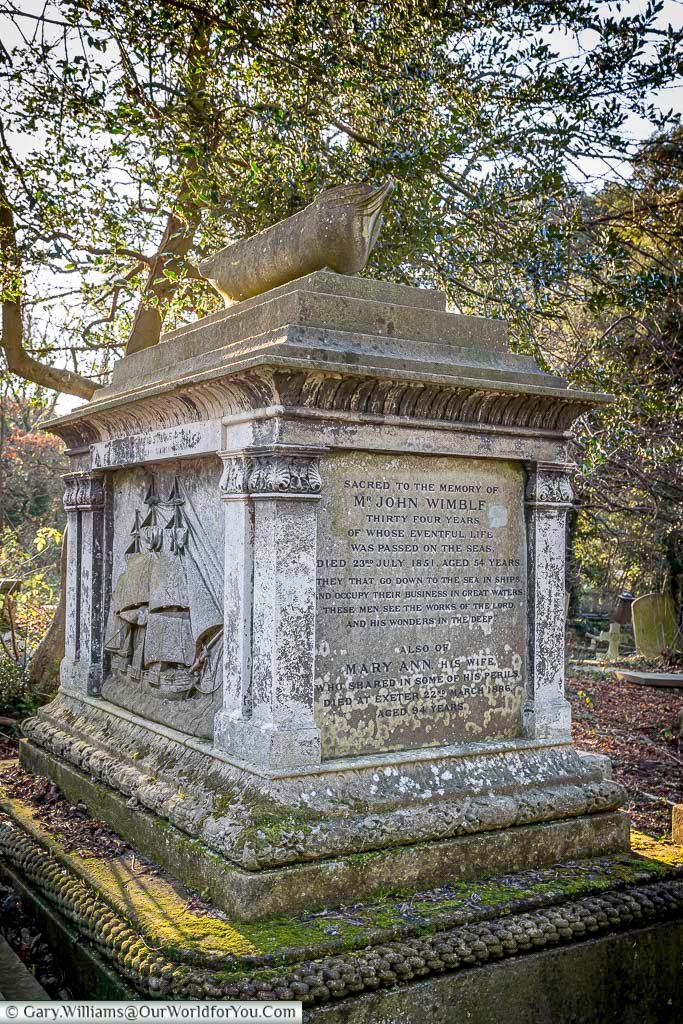
Exploring West Norwood Cemetery
So much to discover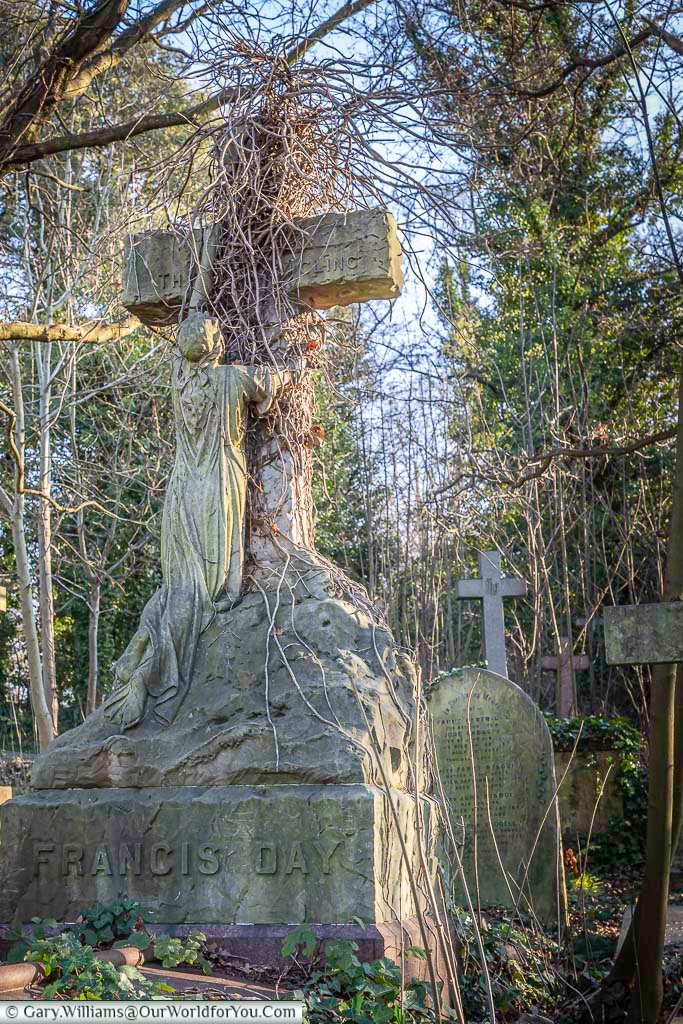
Why not check out more of the Magnificent Seven
* This post may contain links to affiliated sites where we earn a small commission at no additional charge to you.

